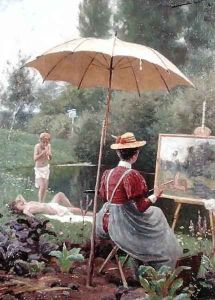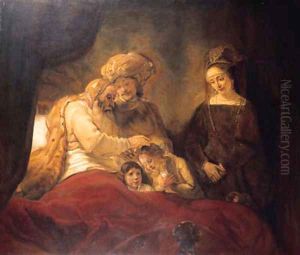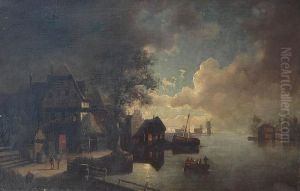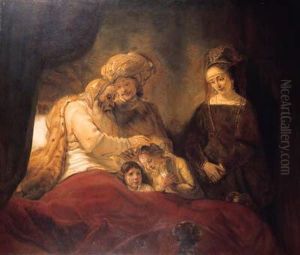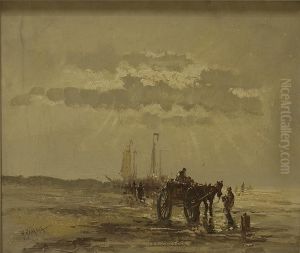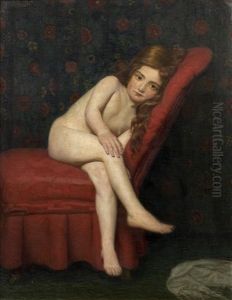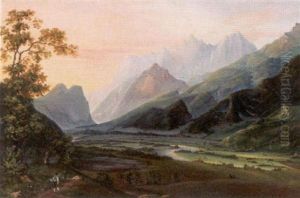Hermann Hirsch Paintings
Hermann Hirsch was a Jewish-German painter born on July 31, 1887, in Frankfurt am Main, Germany. His life and career were deeply impacted by the socio-political upheavals of early 20th-century Europe, particularly the rise of Nazi Germany. Hirsch's artistic journey began at a young age, showing an early passion for painting and drawing. He pursued formal education in the arts, which helped him develop a distinctive style characterized by a blend of realism and expressionism. Hirsch's works often depicted scenes from everyday life, landscapes, and portraits, imbued with a sense of emotional depth and a keen observation of the human condition.
Despite the promising start to his career, Hirsch's life took a tragic turn with the rise of the Nazi regime. As a Jew, he faced increasing persecution, which not only endangered his life but also severely restricted his ability to practice and share his art. Many of his works from this period reflect the turmoil and despair of these years, serving as a poignant commentary on the horrors of persecution and the loss of human dignity. In 1940, Hermann Hirsch's life was tragically cut short when he was deported and subsequently killed during the Holocaust. His exact date of death remains unknown, a poignant reminder of the countless lives obliterated by the Nazi regime.
Hirsch's legacy is a testament to the resilience of the human spirit and the enduring power of art to bear witness to history's darkest chapters. Although much of his work was lost or destroyed during the war, the pieces that survive continue to be celebrated for their emotional depth and artistic merit. His story is a stark reminder of the countless artists whose voices were silenced by the Holocaust, and his surviving works offer a glimpse into the soul of an artist who, despite the unimaginable horrors he faced, never ceased to see beauty in the world around him. Today, Hermann Hirsch is remembered not just for his contributions to German art but as a symbol of the indomitable spirit of those who resist oppression through the act of creation.
